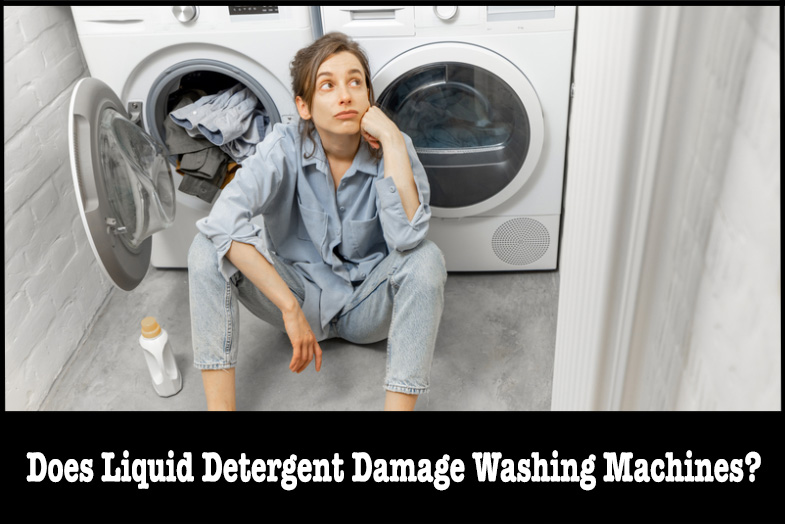Washing laundry with many detergents and seeing suds formation is all fun until you find out that liquid detergent can damage your washing machine.
The presence of harmful chemicals in the washing machine can clog pipes and damage the washing machine over time. This usually occurs when we start using more than the needed amount of detergent. Adding excess detergent to the washing machine can be harmful both for the washer and the clothes.
The damage due to detergent is not very serious. You can prevent it by following some simple tips. Still, the damage due to synthetic chemicals can get worse if not treated at the right time.
Damage Due to Liquid Detergent
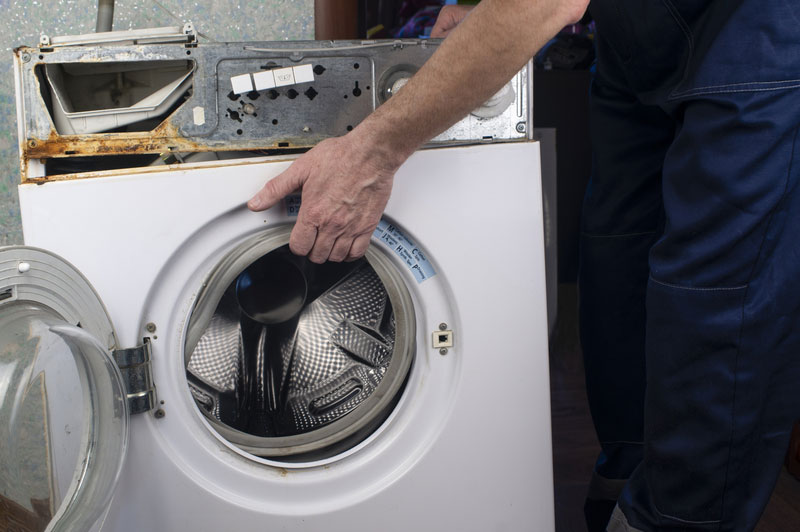
The detergent itself cannot be a problem for your washing machine. Liquid detergent does not form chunks; therefore, it doesn’t get stuck at places in the washing machine. The problem arises when you add excessive detergent in the washer, or the detergent you use is formulated with toxic ingredients.
Residue Formation
Unlike powder detergent, the liquid detergent does not leave chunks in the washing machine. Therefore, the damage is not that serious. However, if liquid detergent residues are left in the washing machine, the washing machine can become a house for mold.
If you do not clean the washing machine regularly, more residues can form in the washer, leading to bigger damage.
Read More: Is Liquid Detergent Bad for Washing Machine?
Using Too Much Laundry Detergent
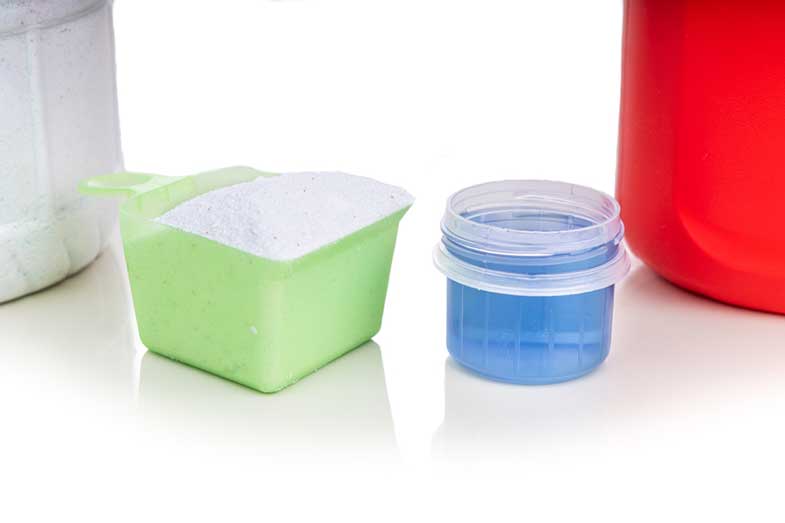
When you add more than the needed amount of detergent to the washing machine, many suds will be formed in the washing machine. These suds can damage different parts of the washer. They can also clog pipes.
Sometimes we intentionally add more detergent following the myth that using more detergent can be beneficial in getting cleaned clothes. However, the reality is the opposite.
Other times the fault is not ours. For example, we measure the detergent using the cap of the detergent bottle. The cap can be bigger than normal. In such a case, the amount of detergent being added exceed the amount we actually need.
Read More: Can I Put Liquid Detergent in the Drum?
Using Homemade Liquid Laundry Detergent
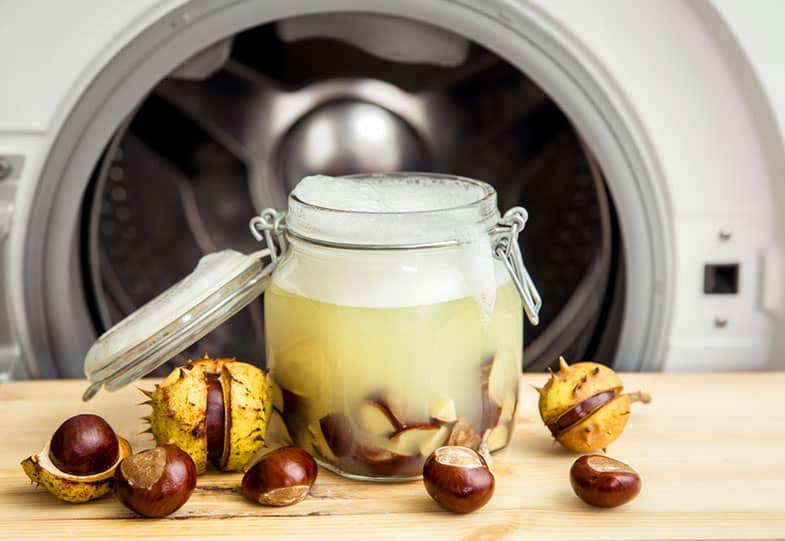
It is a common misconception that homemade laundry detergent works better than store-bought detergent. This is true that homemade detergent does not contain harmful chemicals, and therefore, it does not affect our health, unlike commercially prepared detergent.
The problem with homemade detergent is that it does not contain the chemicals responsible for removing stains effectively. As a result, the clothes do not get the brightness that we expect. Also, homemade detergent leaves more residues in the washing machine than store-bought detergent.
Homemade detergents are more like soaps. At the same time, the washing machines are made for detergent. If you use soap in the washer, it will get damaged easily.
Read More: What Makes Laundry Detergent Eco-Friendly?
Clogging
Using excessive detergent in the washing machine can result in clogging. The major cause of clogging is the chemicals in detergent. When toxic chemicals stay and stick to a portion of the washing machine, they deteriorate its parts.
You can prevent clogging and rusting of the machine by avoiding such toxic chemicals. Here is the list of chemicals that are harmful to your washing machine.
Bleach
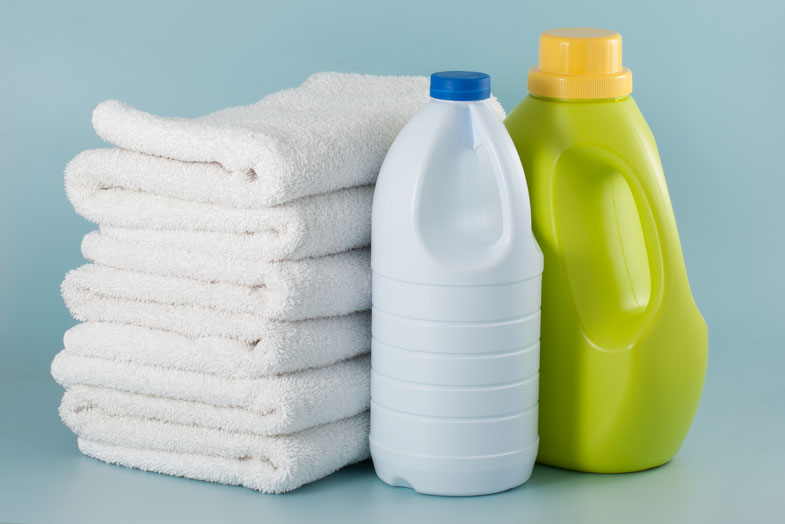
It is one of the most harmful chemicals. Bleach does not spare a thing and damages everything on which it falls. In addition, it is a toxic ingredient that is used in detergents.
Bleached detergents contain more than the normal amount of bleach. When these detergents are used in excessive amounts, the bleach residue gets stuck in different machine parts. When these residues stay there for long, they corrode those parts of the machine.
This can be a serious issue if you use high-efficiency washing machines. Such machines cannot tolerate even a minor inconvenience and get down to zero real quick.
Learn More: Laundry Detergent & Bleach: What’s the Difference?
Caustic Chemicals
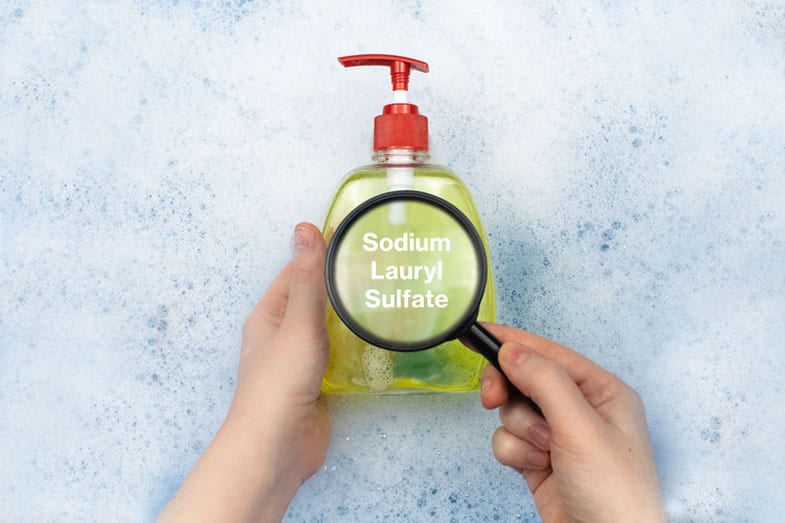
Caustic chemicals are highly corrosive. For example, chemicals like sodium hydroxide are used in detergents. These corrosive chemicals chemically destroy the material on which it falls.
Although these chemicals are added in a controlled amount in laundry detergent, they can still damage the body of the washing machine. In the long run, the machine is likely to corrode. This is why it is important to clean the washing machine once every week.
How to Prevent Washing Machine from Getting Damaged?
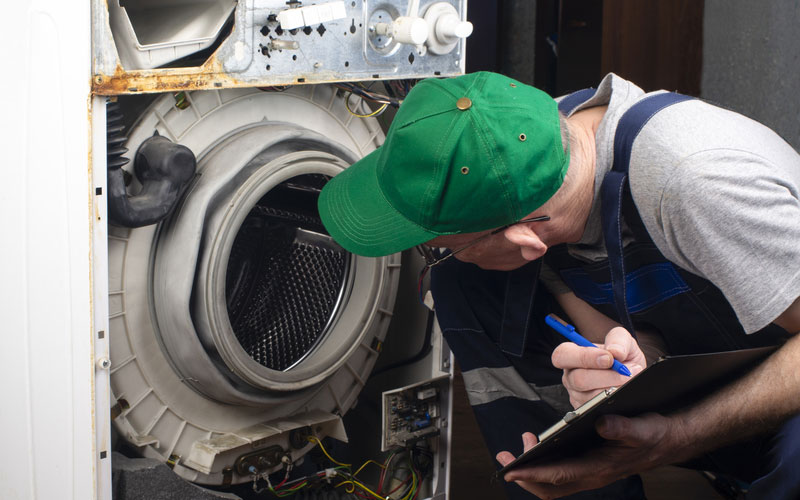
Doing laundry seems very easy. But you need to take care of a lot of things to live a better healthy life. Every laundry product should be monitored if you want to keep washing appliances safe. Here are a few tips that will definitely help you keep your washing machine protected from unwanted damage.
Use Needed Amount of Detergent
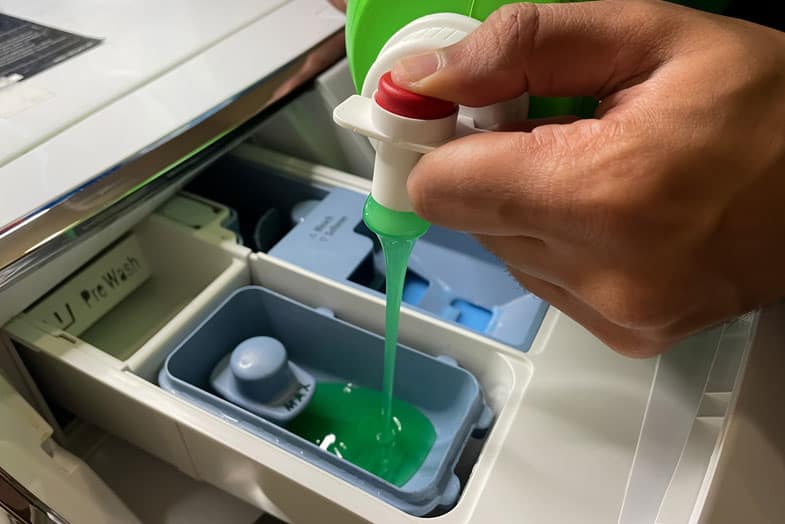
When we use more than the needed amount of detergent, residues of detergent stay in the washing machine. Over time, these residues cause damage to the washing machine. Other than that, when we wash clothes with excessive detergent, lint formation on clothes also increases.
Lint forms due to the film that covers the surface of clothes. This makes the clothes look old and dirty.
When you see many suds forming in the washing machine, take it as an indicator that you have added more detergent than was needed to clean the clothes. Sometimes so much suds form that it starts leaking out of the washing machine.
Other times, when the washing machine is empty, you will smell mold in it. The foul smell in the washing machine is another indicator that you have used a lot of detergents.
Remove Excessive Detergent
When the detergent is used in excessive amounts, the suds do not get removed when you empty the washing machine. Instead, they stick to the bottom. However, there is a straightforward solution to this problem.
Front-load washing machines usually have a cleaning cycle. It is beneficial in such a situation. Pour half a cup of washing machine cleanser into the drum and start the cleaning cycle. After a while, the washer will be clean and empty.
Some machines do not have a cleaning cycle. In this case, you can add a cup of white vinegar directly into the drum and run the rinse cycle. It will be really effective in removing detergent residues.
Standard Amount of Detergent
The measuring cup that comes with laundry detergent is quite big. Therefore, it is recommended to measure the detergent before pouring it into the detergent. The cap of the laundry detergent bottle also takes excessive detergent, so you should not rely on it.
You can always use a tablespoon to measure the exact quantity. In general, a tablespoon of detergent is enough for a small load of laundry. Add 2 tablespoons of detergent for medium-sized laundry and 3 tablespoons for a large load.
Use Detergent Containing Safe Chemicals

The chemical composition of detergent plays an important role in determining its toxicity and efficiency. Synthetic chemicals that are used in detergent are more toxic than natural organic chemicals. Synthetic detergents are harmful to both the clothes and the detergent. They can ruin your newly bought clothes by forming stains. Also, the residues in the washing machine corrode the metal.
A safer approach is to look for detergents made with safe and natural chemicals. There are a lot of green detergents in the market that are eco-friendly. They can keep clothes, machines, and the environment protected. At the same time, eco-friendly detergents provide better cleanliness than most synthetic detergents.
Read More: Can Your Detergent Impact Your Acne and Skin?
High-efficiency Washing Machine
These are special-built washing machines that demand extra care and special ingredients. High-efficiency machines cannot withstand a lot of suds. This is why you should never use regular detergent to wash clothes in an HE machine.
There are special detergents available in the market made specifically for HE machines. Such detergents do not form many suds, and they are required in a tiny amount. So get them right away and save your washing machine from unwanted damage.
Clean the Washing Machine Every Week
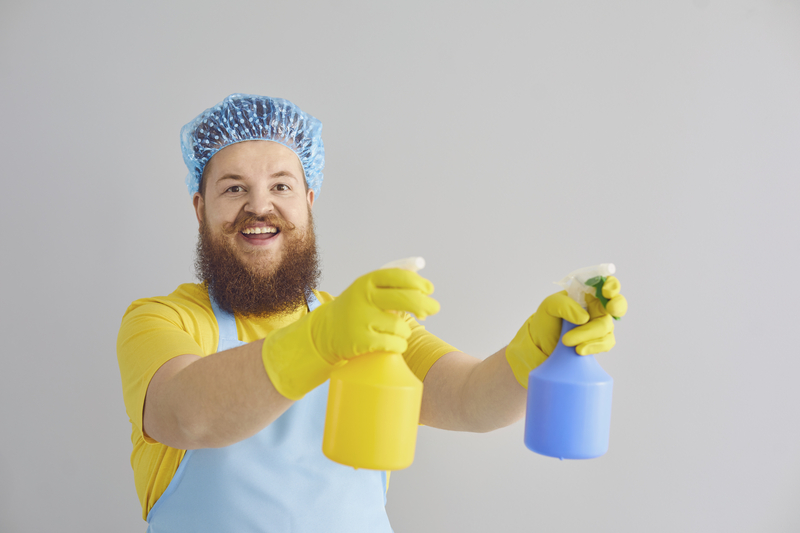
People often believe that washing clothes in the washing machine are enough. This is because it keeps the washer clean as well. But this is not true.
When you wash the clothes, the residues of detergent remain in the drum of the washer. They stay there as long as you don’t wash them thoroughly with water. Over time, these residues corrode the washer and invite molds as well.
This situation asks for thorough cleaning at least once a week. For that, add a cup of white vinegar to the washer while it is empty. Then, run the cycle to get all the dirt and residues removed.
Takeaway
Generally, liquid detergents do not damage the washing machine directly. But when you start using excessive detergent to wash clothes, the suds formation increases and residues are left behind in the washing machine. In turn, the machine becomes a home for mold, and thus corrosion of the washing machine starts.
You can prevent this by cleaning your washing machine with white vinegar once a week. Then, add the detergent by measuring it with a measuring cup or a tablespoon. Also, it is better to look for safer detergents that can keep your machine, clothes, and environment protected.
Keep an eye on the machine. If you see a bit of corrosion, get it treated right away.

